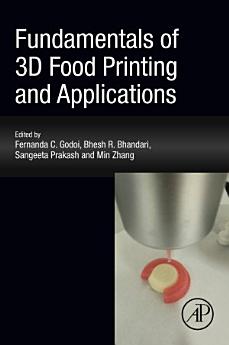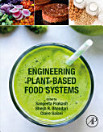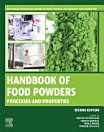Fundamentals of 3D Food Printing and Applications
About this ebook
About the author
Dr. Fernanda Condi de Godoi holds a degree in Chemical Engineering from the State University of Maringá (UEM) (2005), as well as a master's and doctoral degree in Chemical Engineering from UNICAMP (2012 and 2017, respectively). She also completed a post-doctoral program at the University of Queensland (School of Chemistry and Molecular BioSciences), where she worked on producing cathodes for lithium-sulfur batteries using natural materials as binding agents. Currently, she works as an R&D Expert and business partner at the Innovation Center of the Tessenderlo Group in Belgium. Her expertise lies in the areas of natural polymers, process engineering, and emerging technologies such as 3D food printing and bio-printing. Dr. Godoi has published over 20 articles in leading scientific journals, 3 book chapters, and has filed 2 patents.
Professor Bhesh Bhandari has been associated with the University of Queensland for the last 30 years. His research and teaching areas include food materials science, processing, physical and engineering properties of foods. Prof Bhandari has published three co-edited books and more than 500 book chapters and research papers. His publications have been cited more than 36000 times (Google scholar) and is recognised as one of the leading researchers globally in glass transition and encapsulation technologies in food science discipline. He has patented two significant technologies, a continuous microgel particle formation device for encapsulation of food and pharmaceuticals and a technology to produce ethylene powder by applying materials science approach. He has currently several projects on 3D food printing.
Dr Prakash is an academic at UQ with over a decade of experience focused on research related to food processing and the oral and gastrointestinal dynamics of complex food systems. Coordinate and teach – Food Sensory and Structures and Functional Food. Her experimental approaches span from the use of processing devices (3D food printers, ultra-high-temperature processing plants, homogenisers), mechanical measurements (tribology, rheology), imaging (confocal laser scanning microscopy), electrophoresis, in vitro oral-gastrointestinal model with extension to in vivo human trials (sensory) to understand the changes during food processing from a nano-to-human scale. Dr Prakash has commenced several projects in food 3D printing. She is also a guest editor of Journal of Food Engineering managing the special issue on the recent development on food 3D printing technology.
Professor Min Zhang has been working at the School of Food Science and Technology, Jiangnan University, China for the last 20 years. Professor Zhang is one of the highly cited researchers in China in food science discipline. He has published two co-edited books in food science and several other books in Chinese. Professor Zhang has several projects on food 3D printing technologies. Professor Zhang is a reputed professor in food science and engineering research in China.






